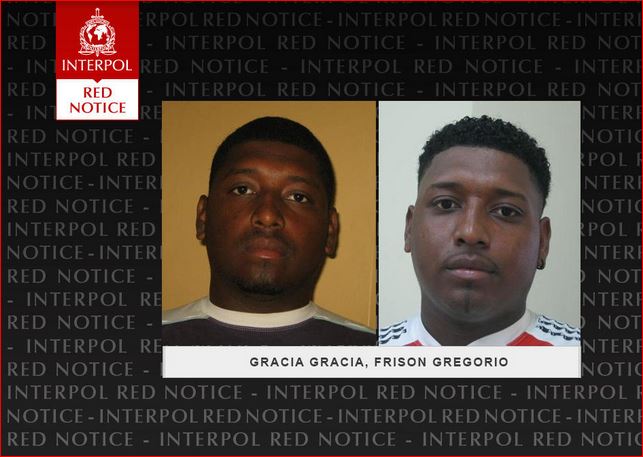Its partnership through INTERPOL’s Fugitive Investigative unit (FIS) focuses on six countries in the region: Bolivia, Brazil, Colombia, Ecuador, Panama and Peru.
Based on the INTERPOL INFRA-RED (International Fugitive Round-Up and Arrest) operational model, the initiative has sought to identify, prioritize and target high-risk criminals.
It has seen notable success with the arrest in Peru of Frison Gregorio Gracia Gracia, the subject of a Red Notice issued by Ecuador on charges of murder. He is currently in custody pending extradition to Ecuador.
Through the INTERPOL Support to EL PAcCTO project, FIS is supporting the three-year initiative funded by the EU to help establish a permanent mechanism to strengthen operational policing capacity in the region.
Operational support
INTERPOL Red Notices for internationally wanted persons and Blue Notices to collect additional information on a person’s identity, location or activities in relation to a crime have provided key operational support.
So far in 2018, 954 Red Notices have been issued at the request of the six participating countries.
An operational task force meeting held in October at INTERPOL’s Regional Bureau in Buenos Aires reviewed 90 cases of priority fugitives, resulting to date in 12 arrests and 15 positive locations.
“Locating and arresting criminals is at the heart of INTERPOL’s work. Its on-going support to the EL PAcCTO project is bringing together specialized officers from INTERPOL member countries to exchange and review best practices in fugitive investigations, and bring criminals to justice,” said Ioannis Kokkinis, Assistant Director of INTERPOL’s Fugitive Investigative Support unit.
Training and capacity building
INTERPOL’s policing capabilities are focusing on strengthening three key areas of interregional cooperation in fugitive operations: investigation, cooperation and modernization.
To this end FIS is providing operational and specialized investigative support to expand the use of INTERPOL policing capabilities to improve international police cooperation and capacity in participating member countries, notably in Peru and Bolivia.
This includes standardizing, analyzing and exchanging data from national systems via INTERPOL’s I-24/7 secure global police communications system, with the FIND technical solution enabling frontline law enforcement agencies to run checks against INTERPOL’s global databases.
Best-practice training and workshops have also been held in Brazil and Colombia as part of efforts to improve policing capacity.

